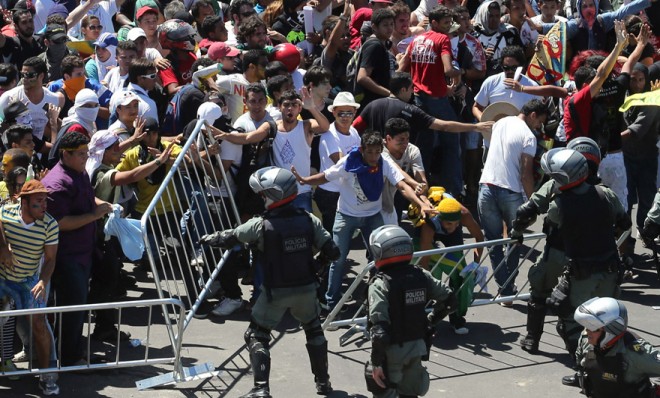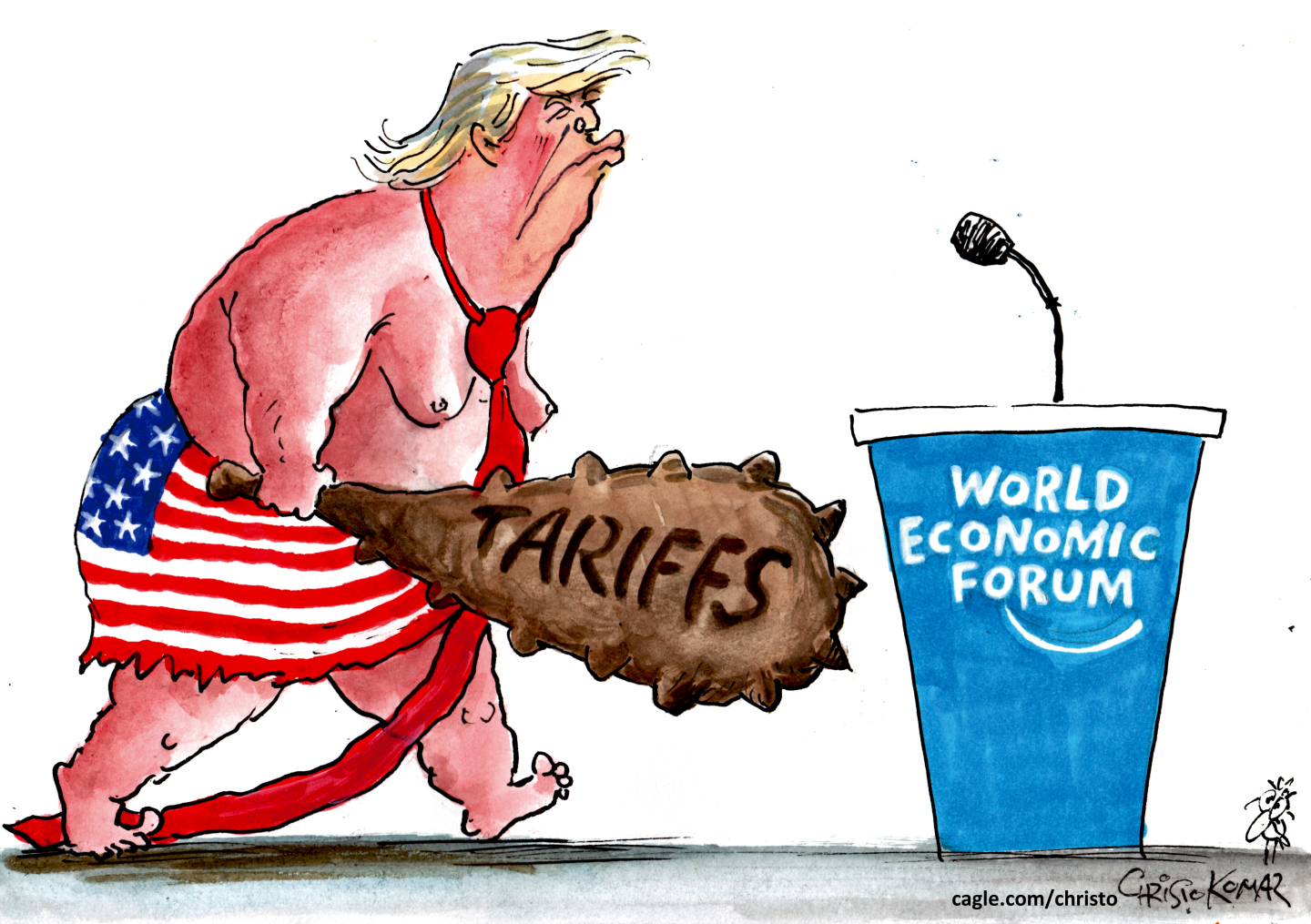Why Brazil's protesters still aren't satisfied
Bus-fare hikes were just the tip of the iceberg


It will take a lot more than cheaper bus fare to convince Brazil's protesters to go home.
The mayors of the country's two largest cities — Rio de Janeiro and Sao Paolo — have rescinded bus and subway fare hikes that triggered a week of nationwide protests. But the concession did not impress the masses, and protests resumed on Thursday in 80 cities across the country. The biggest demonstration of the day appeared to be in Rio.
If the protesters got what they were demanding, why are they still ignoring the threat of tear gas and riot police and returning to the streets?
The Week
Escape your echo chamber. Get the facts behind the news, plus analysis from multiple perspectives.

Sign up for The Week's Free Newsletters
From our morning news briefing to a weekly Good News Newsletter, get the best of The Week delivered directly to your inbox.
From our morning news briefing to a weekly Good News Newsletter, get the best of The Week delivered directly to your inbox.
The short answer is that the fare hikes — by 20 cents, to $1.50 a trip in Sao Paulo — were not the only thing making people angry (although, in a country where a minimum-wage worker makes $313 a month, they did sting). Gary Duffy at BBC News said the controversy over the fares "was only the issue that got the marchers on to the streets — it all seems much bigger than that now."
The objectives of this diverse protest movement are very broad, such as demanding better education and health services. A sluggish economy and inflation that is affecting the lives of ordinary Brazilians every day can be added to the mix.Politicians with high salaries giving jobs and flights to relatives are widely scorned. Inequality and the huge cost of hosting the World Cup and the Olympics are key issues raised by demonstrators alongside corruption, crime and police brutality. [BBC News]
One demonstrator echoed that assessment to The Associated Press. "It's not really about the price anymore," said Camila Sena, an 18-year-old university student who joined a Wednesday protest near Rio. "People are so disgusted with the system, so fed up that now we're demanding change."
The irony is that Brazil's leftist government, led by President Dilma Rousseff, has created an environment in which Brazilians have come to expect much more from their government. Here's Simon Romero at The New York Times:
But expectations among Brazilians remain high, thanks in large part to the government’s own success at diminishing inequality and raising living standards for millions over the last decade. The number of university students doubled from 2000 to 2011, according to Marcelo Ridenti, a prominent sociologist.
"This generates huge changes in society, including changes in expectations among young people," he said. "They expect to get not only jobs, but good jobs." [The New York Times]
And it appears that Rousseff is well aware of that fact. In stark contrast to Turkish Prime Minister Recep Tayyip Erdogan, who has met similar protests with blunt force, Rousseff has sought to frame the protests as part of Brazil's resurgence. "The size of the protests yesterday prove the energy of our democracy," she said this week.
A free daily email with the biggest news stories of the day – and the best features from TheWeek.com
Whether the protesters will see it that way is another matter.
Harold Maass is a contributing editor at The Week. He has been writing for The Week since the 2001 debut of the U.S. print edition and served as editor of TheWeek.com when it launched in 2008. Harold started his career as a newspaper reporter in South Florida and Haiti. He has previously worked for a variety of news outlets, including The Miami Herald, ABC News and Fox News, and for several years wrote a daily roundup of financial news for The Week and Yahoo Finance.
-
 Ryanair/SpaceX: could Musk really buy the airline?
Ryanair/SpaceX: could Musk really buy the airline?Talking Point Irish budget carrier has become embroiled in unlikely feud with the world’s wealthiest man
-
 Claudette Colvin: teenage activist who paved the way for Rosa Parks
Claudette Colvin: teenage activist who paved the way for Rosa ParksIn The Spotlight Inspired by the example of 19th century abolitionists, 15-year-old Colvin refused to give up her seat on an Alabama bus
-
 5 contentious cartoons about Donald Trump at Davos
5 contentious cartoons about Donald Trump at DavosCartoons Artists take on weaponized tariffs, a cheeky offering, and more
